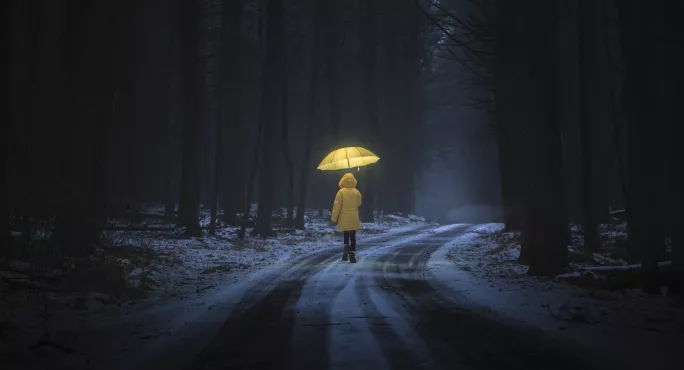What’s the secret to ‘catch-up’? Love

I missed a LOT of education when I was at school in the 1980s and 1990s.
Whole terms, days off that turned into weeks. When I did attend, I was behind, obviously and humiliatingly.
I can still feel the fear of Spot the Dog picture books and tobacco tins of words. I hated that little labrador puppy.
Catch-up: Why pupils need to feel safe and listened to
Love is all around: Should we talk about ‘love’ in school?
Vulnerable children: ‘A foster carer’s love changed my life’
Being university-educated might count in some people’s books as being caught up, but I only learned what precipitation was when I was 23. Some gaps remain.
Presuming I am “caught up”, I’ve often wondered if there is anything in my experience that is broadly applicable? And how exactly did I manage to catch up?
Covid catch-up: An inspirational teacher and classroom
I think it started in Primary 7 - the only year I never missed a day of school.
The routines were predictable, the way to succeed clearly laid out - nothing fancy and nothing hidden. Memorising tables, daily writing, spelling tests. How on earth did I go from a non-attender, non-enthusiast and engage with this uninspired regime? Not only did I engage, I took two buses and walked half mile to do so. All under my own steam. From setting my alarm, saving bus fare, laying out and handwashing school clothes.
Standing at my Primary 7 teacher’s desk one day, I watched eagerly as she marked my jotter when she asked quietly, “How are you here every day when you used to miss so much school?”
I was uncomfortable being confronted like this, but I answered in a whisper: “I like Primary 7.” And in an even quieter voice still: “And I like you.”
Primary 7 didn’t permanently set me on the straight and narrow. High school wouldn’t go much better than the rest of my primary career: more attitude and rage and yet more absence.
My fourth-year prelims (or mocks, if you’re not from Scotland) were a complete disaster of grade 6s and “No Awards”. But between my prelims and final exams (roughly five months) something happened.
The short version: I was brought into a stable home that triggered a series of epiphanies. I worked hard to turn the prelim results around in time to get into Higher classes. I left school in fifth year with three As and a B and started teacher training at Jordanhill, in Glasgow.
Am I a genius? Unusually clever? I don’t think so. I think my success had something to do with that P7 classroom - a classroom that by today’s standards might not even do well in a school inspection.
It was like there were precious flakes of gold for me in that class, which I gathered, which I hadn’t seen before in school. They helped me recognise and collect more when they were offered again - and again - until eventually I had enough to make a metaphorical nugget of my own.
I was surprised when I found some of those P7 daily writings. Some of them mounted, from having been on the classroom wall. Poor syntax, terrible spelling, lacking correct punctuation. By some means, my teacher had given me the impression that I was an excellent writer and… ah, there it is, the key to what happened to me after that.
I’ve heard it said that with some people (the special ones) you won’t remember what they said, you’ll only remember how they made you feel. That was it. She made me feel like a learner. Her teaching was unhurried, predictable, repetitive even. That made me feel safe, relaxed and open to growth.
If anything is to be extrapolated from my experiences - and quite possibly it isn’t, but if it is - I can’t help feeling like education might not be exactly how it is always portrayed. Maybe gaps aren’t filled in a predetermined time or by a precise set of variables. Maybe they are filled by experiences, patience, and - let’s just say it - love. My teacher loved me and I loved her and that’s what really made the difference.
To me, education and love are synonymous. Education and confidence, too - in self, sometimes in others. Education is about being taught to think critically, question and challenge. It’s about having hope, optimism, interest and curiosity: an awareness of what you don’t know, the confidence to ask and a sense that both are OK.
And if you can leave school with all that intact, I can’t help thinking it will all be OK in the end. Some gaps manage to take care of themselves. I mean, who actually calls rain “precipitation” anyway?
The writer is a primary teacher, based in Scotland. She is also a respite foster carer and a former Children’s Panel member
You need a Tes subscription to read this article
Subscribe now to read this article and get other subscriber-only content:
- Unlimited access to all Tes magazine content
- Exclusive subscriber-only stories
- Award-winning email newsletters
Already a subscriber? Log in
You need a subscription to read this article
Subscribe now to read this article and get other subscriber-only content, including:
- Unlimited access to all Tes magazine content
- Exclusive subscriber-only stories
- Award-winning email newsletters